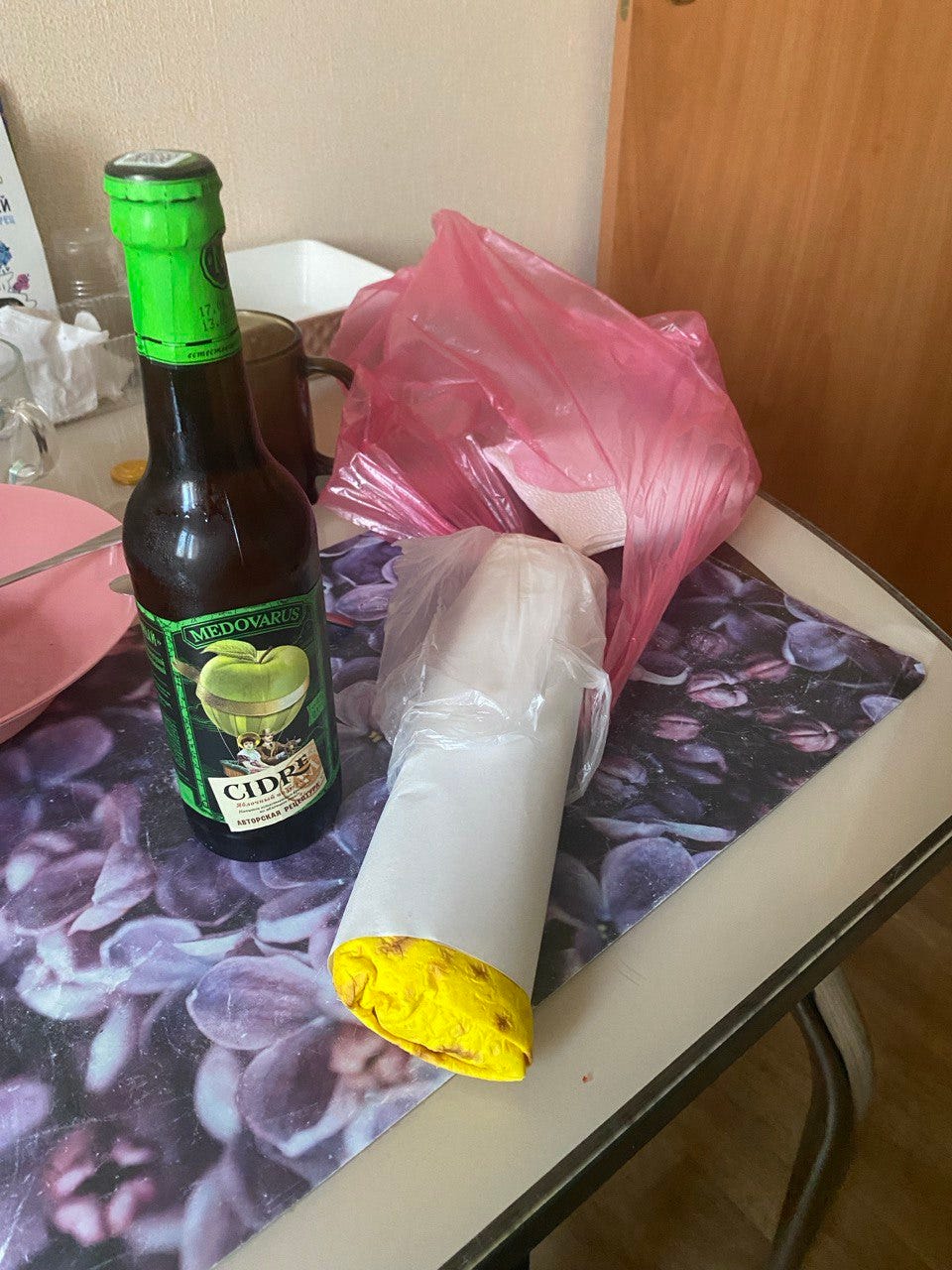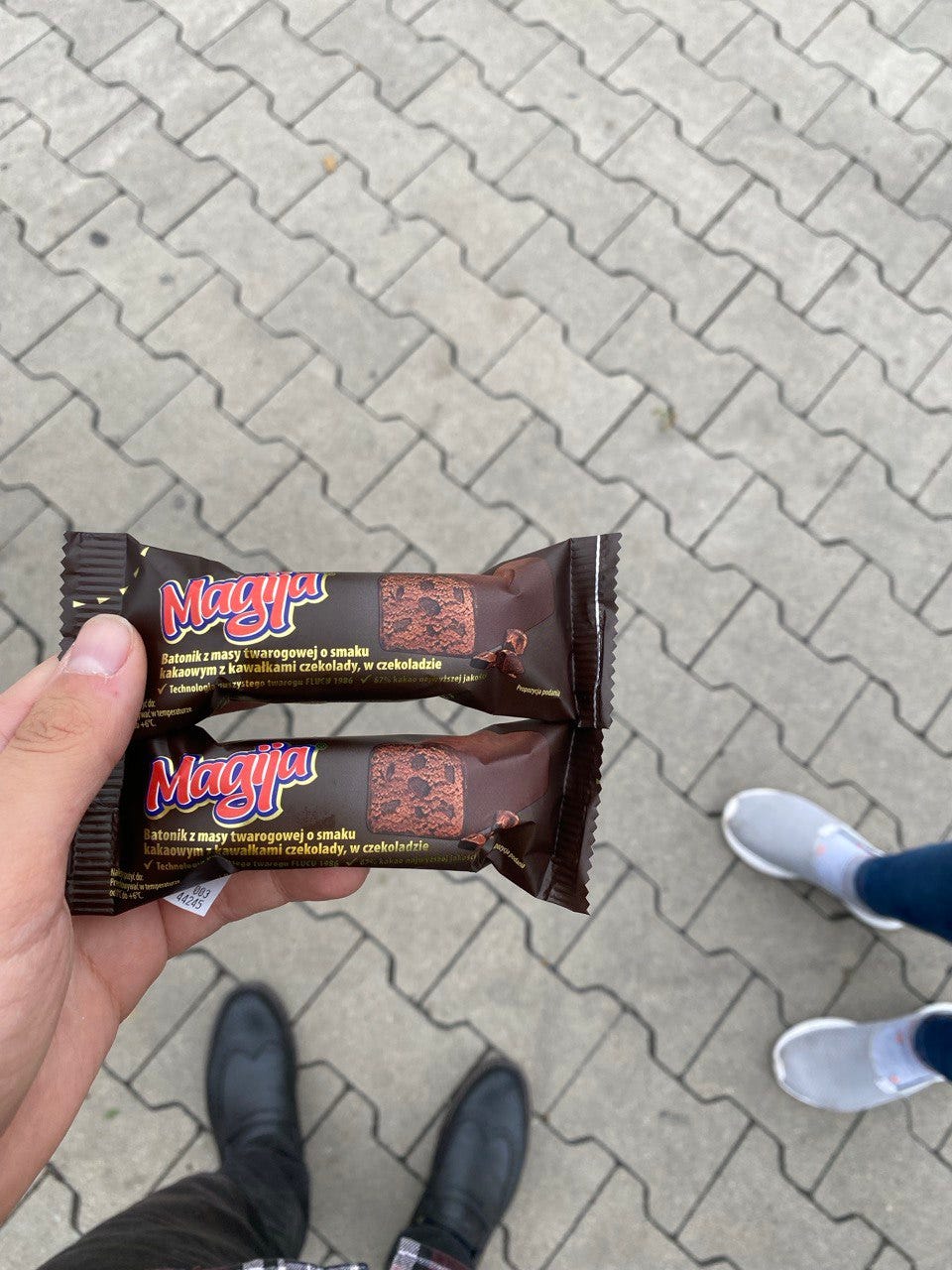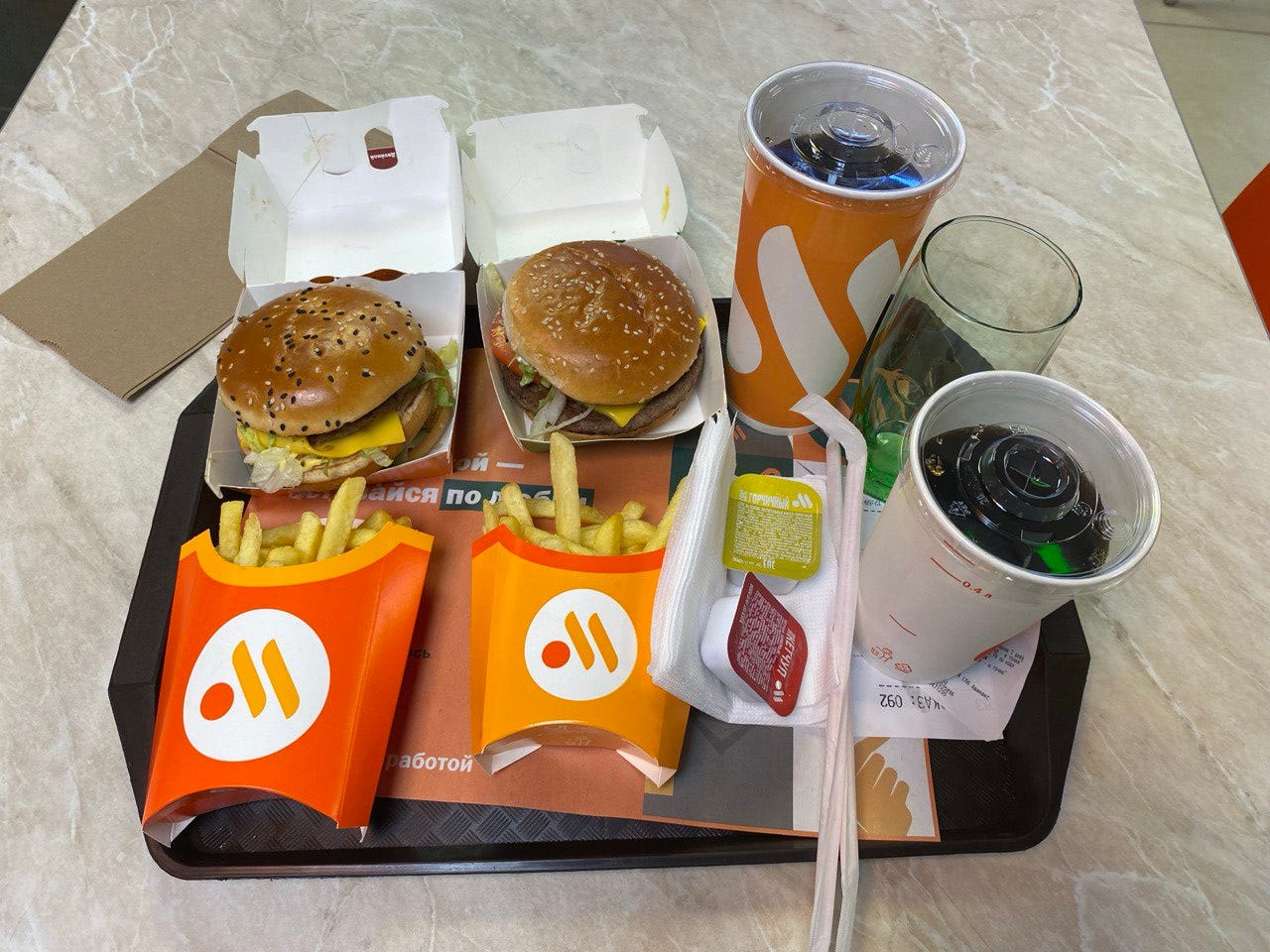Visiting Russia at the Midst of War 2024
Documenting my short trip to Russia at the midst of the ongoing Russo-Ukrainian War
This is not going to be a personal blog of my travelling experience in Russia (only a bit of that), but a contrast of Russian society in relation to the West from an angle you’ve never read before. Meaning I won’t dwell into the usual one dimensional analysis of one or two topics and focus the entire thesis on that, but rather focus on a few unique insights that other’s don’t, while nonetheless also talking about the war, demographics and finally Russian authoritarianism and its unexpected reinforcement.
The Russian city I visited for under two weeks was Saint Petersburg and I’m not going to describe how beautiful and culturally rich the city of Saint Petersburg is, as it has already been thoroughly discussed to death by others before me. Instead, the emphasis is on things that I found to be extraordinary to a typical Western eye (and although, I’m a Russian myself, I’ve been permanently living outside of Russia since 2001 with some minor some exceptions. Last time I visited the country happened in summer of 2017 and much of the comparison will be drawn with the Greater Toronto Area in Canada).
Food
Before I address serious topics, I’d like to start with something lightweight. If you’re you are here for the social analysis as opposed to a future food travel guide, you may safely skip this section.
Shaverma - It may be overtalked about in the Russian segment of the internet, because it is common knowledge that Shaverma or Shawarma as it is called in English is one of the best foods in Saint-Petersburg, but I think that it is so good and inexpensive that I’ll stop going to Canadian shawarma slop restaurants after tasting a fresh, non-destructible and under three dollar laffa with expensive ingredients. In Canada to get something like this I’ll need to pay at least 20 dollars or go to a specific restaurant where they make it, but even that will not have the same ingredients, because the Russian Shaverma is significantly different and better than the commonly known Arab one in the West.
Russian snacks - In addition to having every single snack of the West, Russia adds their own unique flavor to it. Such flavor is called “Syrok” or a Curd Snack which is made out of chocolate shell and a curd cheese internals which can then be filled by any flavor of your choice. I remember eating them when I was very little, so it was a pleasant experience for me to taste them again. Here are a few different flavors that I've tried, though the quality of this food can varies strongly, so it's important to know where to buy from.
After the war, you’d not be able to buy it in any Russian shop in Canada but I managed to get some in Poland which were produced locally and can be found in the general stores.
They also have their own donuts shop, but they couldn’t yet form a centralized chain like the Tim-Hortons so food in these shops varies so here is a picture I took inside one of them:
The final Russian snack is called “Trubochka”, which can also be found in the general stores. They look like this and are filled with a boiled condensed milk (varennaya sgushenka) or something else.
Non-alcohol drinks - Another W for Russia is that they have non-alcohol drinks that taste like alcohol and some other flavor that the alcoholic drinks come from but don’t actually have it. It is often the case that in the same shop one can find the same drink, except one version of the drink will contain alcohol but the other will not. Those who are addicted to drinking, will have the option of getting their favourite alcoholic drink but without alcohol. Years ago when it was first introduced, Russia was in the top 3 most alcohol consuming nations in the world, along with Ukraine and Moldova but thanks to this and similar programs Russia is finally out of the top 20 most alcohol consuming nations in the world.
Russian McDonnalds/KFC replacement - One of my central missions in Russia was to check how well Russia withstands Western sanctions and one of the easiest ways to do so was to check whether Russian brands who came to replace Western ones are better, worse or the same. Obviously when it comes to clothing, cars, aviation, Russian MIR (visa system) I’m not sure that a comparison is even needed, but when it comes to food a comparison is not only very appropriate given that the Western and Russian food capabilities are equal, but such comparisons can be easily made and it won’t even cost much.
The first target of this comparison was McDonalds’ which in Russia turned into Vkusno I Tochka (Tasty and That’s It). The rebranding wasn’t the best and I initially assumed it would suck massive BBC but I was pleasantly surprised when I tasted it because in none of the burgers (who aren’t even a copies from McDonalds with the exception of Big Mac) the meat was synthetic as it is in McDonalds. Believe it or not, they used real meat and their fries tasted similar but better than fries at Burger King, while the Russian cola tastes just as the Western one does. Service was fast and the menu is much wider than what I saw in Canada and even includes traditional Russian food while the pictures of food resemble that of upscale Western restaurants, and the finished dishes appear exactly as they do in the menu (and I got a free glass!). Some Europeans told me that McDonalds in Europe tastes better than the one in North America, I tried to eat some McDonalds in Poland for comparison and it honestly is the same goyslop I remember it being in Canada. Same disgusting half-stuffed meat that I bet won’t decompose for a year and a slightly different tasting fries.
Meanwhile, Russian KFC transitioned into Rostic’s, with a menu that has evolved to resemble a distinctive restaurant chain rather than the traditional KFC offerings. The burgers were decent, though not as tasty as those at Vkusno I Tochka (still better than anything in Canada). That said, I only tried two, so my conclusions may be limited by the small sample size. However, the fries stood out enough to deserve their own category, as they didn’t resemble anything I recall tasting in Canada. My only pretension towards Rostics’ and any other fast-food restaurant in Russia was that their drinks were too small. I had to order an extra-large drink in order to feel like i’m drinking a medium+ drink in Canada.
The War
First serious thing that I’d like to address is the general attitude towards the war (or a lack thereof). When I came to Russia, I assumed that its public and national security would be leveled to a max and that I’d see military men and cars walking around the street. I certainly saw the first thing (which I will explain later), but not the latter.
Now, it is worth pointing out that the only place I’ve been in Russia was Saint-Petersburg and a somewhat remote rich people’s town on the Neva river, and perhaps in the Kursk Oblast or in the Donbass the experience would be the exact opposite, but you’d still expect to breathe the atmosphere defined by the theme that the country is at war, which was completely missing from the picture, except the occasional highly annoying advertisements at Metro and other means of public transportation about joining the Russian armed forces (to be sent to Ukraine).
PS: Apparently, the starting bonus of signing a contract with the Russian military in SPB is equal to more than 21 thousand American dollars, while the monthly salary of the Russian soldier fighting in Ukraine would put him well above the 95th percentile of the average monthly income (explains why they aren’t doing the mobilization thingy).
People go on about their business, without putting much thought about their country being at war even though, the Russian KIA’s estimates have mounted to well over a hundred thousand. It's as though the conflict is unfolding in a distant place, something they've merely heard about on the television.
I recall asking one of my friend’s opinionated liberal friend about their thoughts on the Ukrainian Kursk offensive (when it still wasn’t completely stalled) who responded in a pretty chill manner, communicating to me that he does not care about it (even though it is the first time Ukraine launch a full-scale offensive into Russia-proper at that time controlling more than 800km2).
They often joke about the war, but a majority of those jokes involve individual-based cases of someone getting dragged to the war (with or against their will) take upon a mocking character in which the soldier is always equated to a moron who either out of his own stupidity went to the war or was dragged there by the state in which case he is worthy of sympathy.
As you can imagine, the people I’ve met were either neutrally inclined to the war or completely opposed to it, so my qualitative analysis is heavily skewed by my personal experiences and my friend circle, yet their views still converge to tell a consistent story. For instance, a rich relative of mine who is now pursuing film school has told me that none of his classmates or professors support the war effort or Putin, to a point that they are purposefully sabotaging conscription orders by registering dropped out students as currently studying. Apparently, this is such a commonplace phenomenon that it turns out that my other friend who is pursuing an engineering degree, has also told me that even random people who never went to a university were registered with the university by the administration so that they could avoid the army too.
The support for the war in the engineering department despite its assumed rightoid inclinations, is also pretty low given that the person who wears Z-marked clothing to classes is best regarded as a local freak who is the constant subject of mocking jokes of all of my friend’s friends.
At the same time, any open hostility to the regime (including opposition to the war effort) is never voiced in any academic institution or even near oppositional organizations such as Prizivu.Net (a lawyer firm that helps conscripts evade military service). Whenever someone attempts to give their dissident opinion on any topic in a professional setting, they get quickly shut down by another dissident fearing punishment. Oppositional views remain a weirdly widely-dispersed secret knowledge in which everyone tacitly knows about everyone else’s’ views on the war which could still be plausibly denied if pressed by authorities.
Demographics
Most people on the online right appear to now solely be driven by demographics which they check much more often than socioeconomic indicators of the country whenever they are deciding whether or not the country is based.
Russia has been portrayed both as a White safe-heaven and as a ideologically Eurasianist anti-racist nation which is undergoing the same demographic shift as the West with the exception that it’s also a lot poorer compared to the West. These two diametrically opposed takes view reality in an extreme ideologically driven way and assume that others to do as well. The standard intellectual reply in this case would be something resembling “both are correct” and so I skip this page and go directly into documenting the observations about Russian demographics that are outlined below:
The Saint Petersburg population is overwhelmingly White.
non-Whites in Saint Petersburg are mostly working age (migrant workers) and children are rarely seen amongst them.
Despite that non-Whites are highly concentrated in fast-food (especially in what is known as shaverma stores) and construction. Most workers in construction were non-Russian while non-Whites have constituted up to a third of workers of all fast-food places that I’ve been with. In comparison, the share of non-White workers in fast-food chains in Greater Toronto Area has never fallen below 3/4rds. However if we go to general stores and even more professional magazines then working age non-Whites fall to around 15% of the total (unlike in GTA, Canada).
The composition of these non-Whites is mostly of Central Asian, Russian (Buryatia, Chechnya) and Caucasian (Kavkaz) origin, however there’s been a recent influx of Arabs, African Blacks, Chinese, Indians and other migrants which are more typical to see in the West than in Russia. I remember being shocked hearing a full-blown Black woman taking my order in Russian without a hearing noticeable accent. If I were to estimate these new immigrants which did not come to Russia prior to the 2000s now constitute at least a quarter of working age migrants in Saint-Petersburg.
Most of these working age migrants will likely go back to their countries without ever becoming citizens as becoming a Russian citizen for a person born outside of Russia requires one to renounce their former citizenship in favour of Russian which is not something many of them are willingly prepared to do (Westoids take notes).
Russian advertisements, clothing and food begin to be slowly catered to migrants (especially Islamic ones) and its noticeable.
Many Russians are quite open about their dislikes of migrants and aren’t afraid to show hostility or being rude to them. Quite strikingly, the Russian bureaucracy and governmental services are indicatively treating non-Whites and non-Russians worse (I was a witness) than Russians and they proudly make it noticed.
Obviously these are my personal estimations as well as the estimation of my friends who I have asked as well which by no means necessary should apply to Russia overall, or its small towns and villages that have had the same ethic composition for hundreds of years. What I say applies to large, highly developed elite cities like Saint Petersburg whose GDP equals to the GDP of Ukraine or all Baltic States combined. Migrants only go to places where they can make money and so you’d expect to see a lot of them in Saint Petersburg, Moscow, Kazan and Tyumen yet significantly less if not non-existent in places like Pskov, Tver, Smolensk and Vladimir. So that is why it is important not to present data taken from a outlier sample as representative of the country at large.
Russian Society
The first immediate thing that came to mind while visiting Russia is that there women wear dresses way more often than I remember them wearing in Canada, and with the exception of boomers people there dress elegantly. Another significant cultural distinction is the feeling of a profound social cohesion. For instance, I saw and was a participant of social interactions in which strangers effortlessly engaged in conversation and even formed friendships with other strangers, often by joining ongoing conversations between other unfamiliar individuals. Something like that is unthinkable in Canada, and as I have observed is also true of Poland. If I were to guess, the same was also the case in Canada when it was homogeneous and had a lot of trust/social capital, but as soon as non-Whites began to be moving here that ceased to be a thing and people became more individualistically oriented. Perhaps this is why Russia (and by extension Eastern Europe) has much less social anxiety in comparison to the Western countries.
At the same time the people are also highly politically apathetic, both in their choice of humor and engagement on important political topics. I say politically, because socially they are more empathetic than in Canada, and results of wallet-return experiments only further validate my point in which Russia scores above average and Canada/The US. But politically, they are either keeping it quite to themselves or crack a joke in such a way as that you’re left thinking that either they don’t want to talk about it or they just don’t care. In the rest of this essay I want to discuss a potentially unique source of this apathy.
The first immediate thing that I saw in Russia is the excess of people of authority monitoring society and the means by which they do so. When I was entering Russia with my Canadian documents I was interrogated for it over an hour in a separate room and was even given a small fine. Throughout this time I was also being rude towards by the border guards and this rudeness was probably done for the purposes of intimidation. This sense of rudeness I sensed way back in Estonia by the hotel personnel in which I stayed and that was further exacerbated during my border crossing to Russia in which I spent about 9 hours because as it turns out they decided to employ one out of four passport controllers but also fine everybody who decided to look at their phones while inside the building (this was still while in Estonia). Below you can see the queue in which I was (most of the people near the entry were waiting since the previous day).
Such rudeness, or khamstvo as it is known in Russian, is a common trait exhibited by individuals in positions of authority (or service providers) toward those they perceive as inferior or in need of a service. It is a characteristic of verbal violence and can work as an intimidation tactic, which led me to the following thought: perhaps the Russian population has lost its political agency precisely because it was intimidated into silence?
On the surface, it appears highly logical, but examples from other dictatorial regimes such as Iran and Venezuela, as well as other post-Soviet republicans tell otherwise. But what if violence in Russia does not solely come from the government, but from the people themselves who perpetuate it?
Think for example of this famous law, legalizing family violence which came earlier than the present draconian crackdown on civic liberties or the fact that Russia is leading Europe (or is number two) in the homicide rate, or it’s glorification of military strength and brute diplomacy, surely Russia appears as a very scary place for those who may oppose all of that but may still wish to live in Russia. What then must they do? Exactly, keep quit and don’t cause conflicts which may turn out pretty violent.
It is especially annoying because policing authorities are very salient in Russia. For instance, there is no job title in Canada like bus or a train controller, but in Russia it is commonplace. You are obliged to pay for the bus yourself and then wait for a controller woman (or man) to get to you and check the validity of your ticket. Same with security guards. They are everywhere in public transpiration and if they don’t like how you look, they may pull you to the side for a special inspection.
While America has often been labeled a “police-state”, the amount of its police officers range anywhere between 600 and 700k, meanwhile Russia’s police force numbers around 900K while its population is 2.5 times smaller than that of the US. Furthermore, their wages (as well as the wages of Russian soldiers and FSB) are very high in relation to the wages of teachers, regular engineers and medical personnel which is precisely the reverse of what we see in the West. That is so because the Russian state and its institutions are to a large extent operate on violence and in order to pacify their population and in order to continue perpetrating it it, they are incentivizing it as a form of social mobility (which sort of what Russia has engaged in historically).
Because Russians aren’t necessarily low on agency all across the board, but are only low on political agency, this further validates my point, however as I was thinking about what I wrote it appears that it’s not entirely true. Russians are low on political agency only on things they regard as political, but their agency on political things which they regard as social appears a whole lot higher than what can be seen among Westoids in dealing with their own demographic replacement. I’m talking about the regular Russian protests that organically take place every other time they hear that a Muslim Mosque may be built in their city/neighborhood. Because the mayors of the city are on the protestors’ side anyways these demonstrations are permitted, their complaints are often heard and in most cases the permission for a mosque gets revoked or forced to move somewhere else.
Thus state violence applies only to things that threaten the established order, no matter its origin whether it comes from a pro-Z Igor Strelkov or an anti-war soycuck like myself. Repression can be violent only to those who are openly hostile like Navalny but for the majority of the population it is self-repression which primarily stems out of the fear of the state (and its agents) that increasingly exerts an even greater influence power upon the population than what I imagined was during the 1980s Soviet Union. Yes, the Russians currently have way more rights than they used to have in the Soviet Union, including all of the economic rights that people in the West take for granted, but the scope of reach and its execution that the Soviet system had, pales in comparison to the present abilities of the Russian state.
This makes me think of Ukraine which has moved further towards anti-democratic direction after Zelensky’s election and which has further accelerated during the war. For instance, despite peace enjoying a significant popular support in Ukraine while mobilization being widely unpopular, and Volodymyr Zelensky’s approval ratings are now lower than Yanukovych’s in 2013-14, there are neither pro-peace or anti-mobilization protests (there are only individual cases of forced resistance) nor anti-Zelensky protests in Ukraine despite enjoying a strong (over 40%) public support. Lone protestors and picketers are arrested and being accused of being Russian agents or sympathizers, which could not have been imagined under a much more pro-democratic president Poroshenko and if we’re completely honest even Viktor Yanukovych under whom protests and civic engagement on any topic was commonplace. Protests nowadays are exclusively held on pre-approved topics such as the recent LGBTQ march in Kharkiv, yet the marches designed to protect the Ukrainian Orthodox Church from being banned didn’t take place.
But I digress, the nation's political apathy is most likely culturally reproduced and incentive as a form of social mobility towards the top, because at the end of the day anyone can join the Russian elites, as long as they reproduce the established organizational principles of the elites without adding anything which may challenge it.
I left Russia thinking that the only means of resurrecting a civic society there is by means of severe cuts to the bureaucracy and siloviki apparatus (through reduction of their wages) and cultural stigmatization of violence which upholds the present Russian order. Only when Russia starts paying teachers and medical workers a head above it pays its policemen and the army (and remove forced conscription) can the basis for actual democratization be laid as opposed to the farce of the 1990s when no significant changes to the Russian cultural landscape actually took place.
Base → Superstructure











